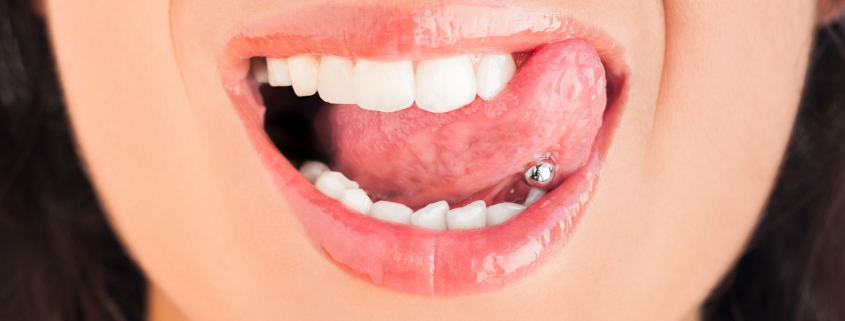Do Oral Piercings Damage Your Teeth?
Tongue piercings are one of the most popular body modifications out there, and although piercings have become more of an accepted norm amongst society, dentists remain critical of tongue piercings and their effect on oral health. Tongue piercings can cause a variety of problems including the cracking and chipping of teeth, as well as causing tooth movement.
Cracking and Chipping
Particularly when the piercing is first placed, there will be a little bit of time needed before the individual is used to it. After all, there is now something foreign in their mouth that will now affect how they talk, chew, and behave. Many fiddle with the tongue piercing once healed, making it clang against the surface of the tooth. Overtime, and with enough force, it can actually start chipping away at the enamel, and biting down can cause a crack.
Tooth Movement
If the tongue piercing is too far forward, it can cause constant pressure on the back of the teeth. This pressure can cause the teeth to become loose and shift from their positions, making them force their way over other teeth or creating gaps. Although this can occur without the presence of oral jewelry, it is much more prevalent in individuals who choose to have a tongue piercing.
This is not to say to not get a tongue piercing. Although it continues to not be recommended by oral health providers, if taking it out is not an option, there are jewelry options available that can lessen or eliminate the damage completely. Speak with your piercer about the options available once the initial piercing heals and is ready to be changed out with something else.
For more information about the risks associated with tongue and oral piercings, consult with your dentist.

